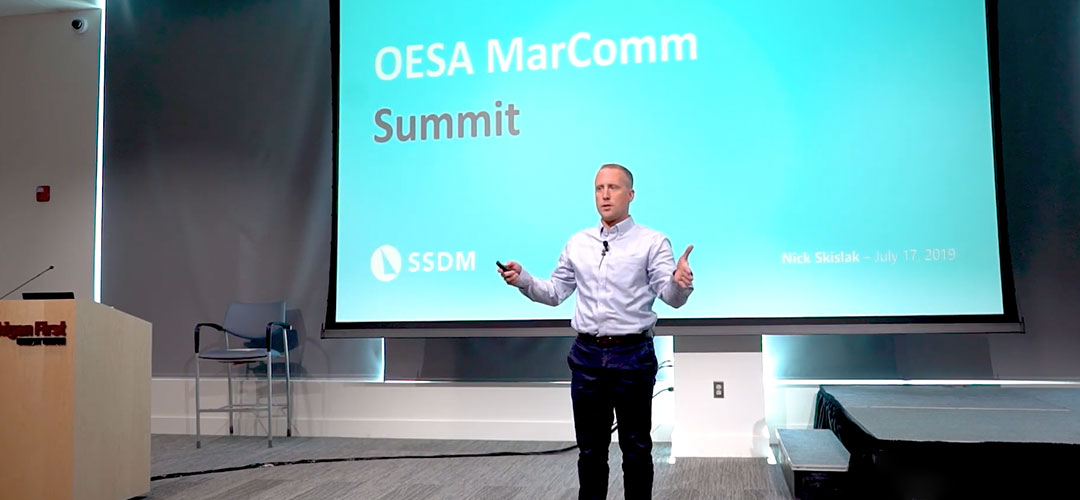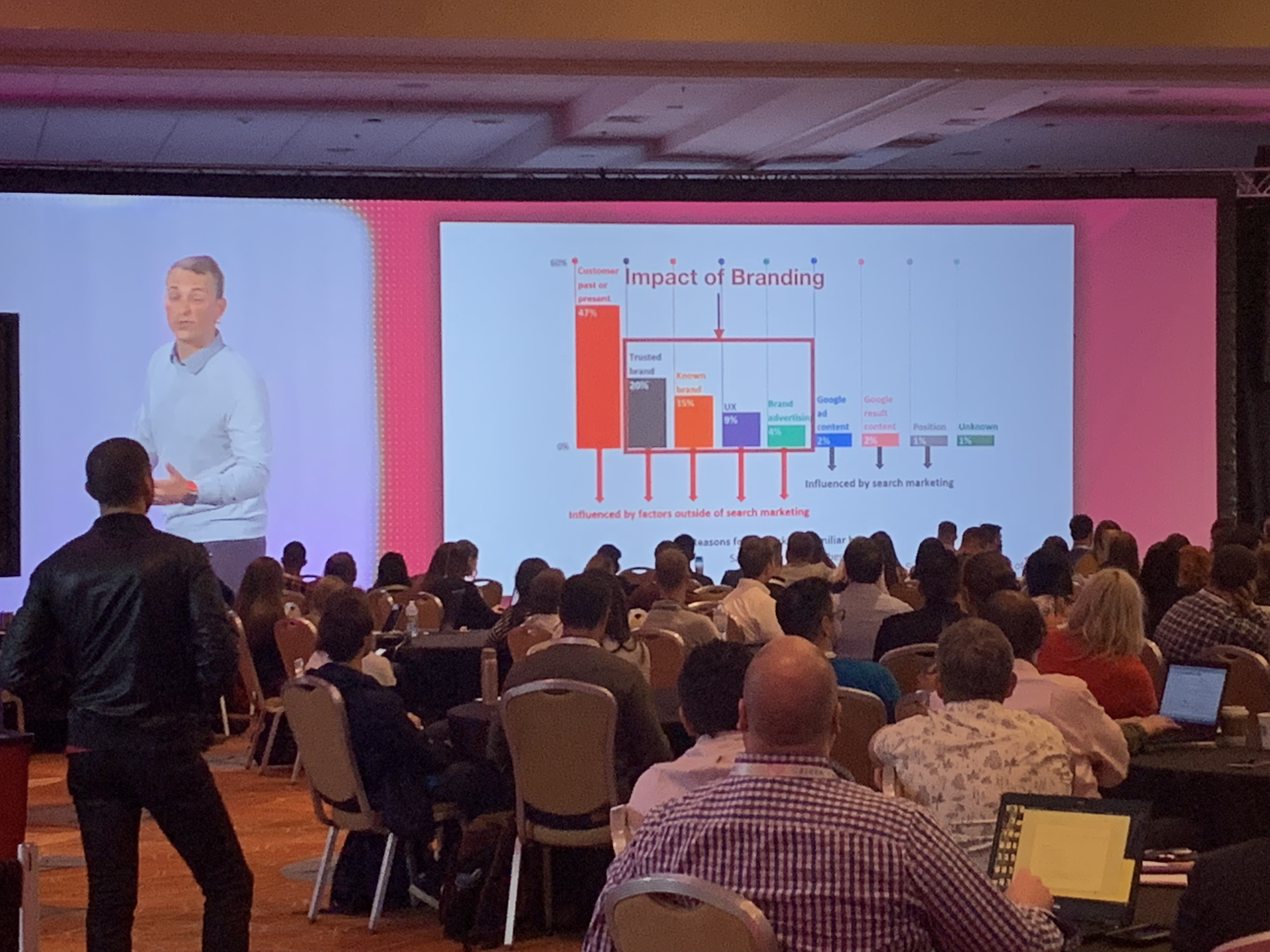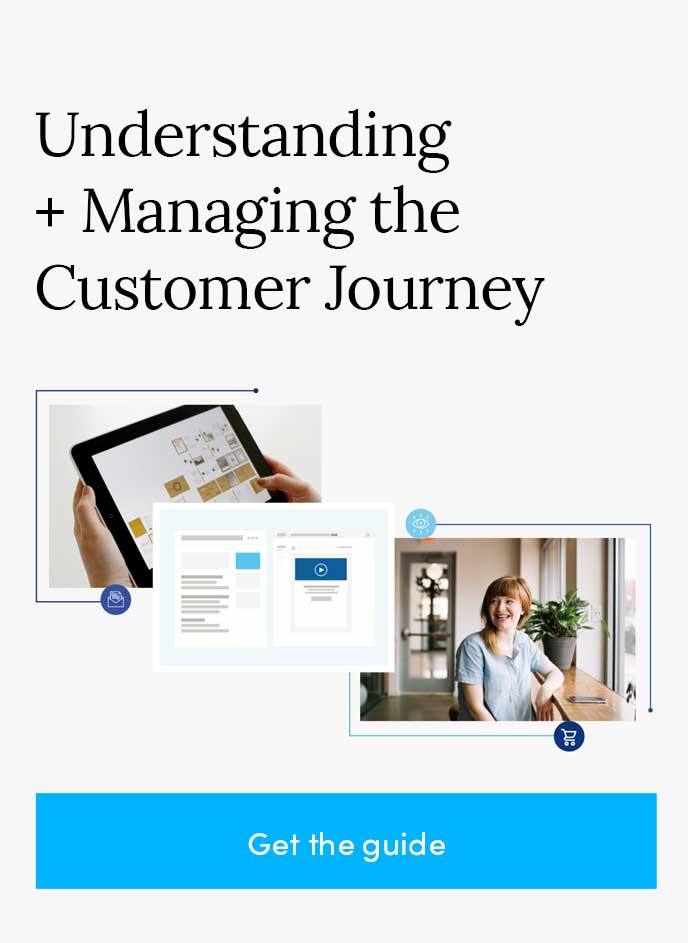What an amazing few days and the Landy Awards last night were nothing short of amazing. This morning we kicked off with some mobile tips. Here’s the recap:
Session #1 – Your Mobile PPC Sucks But It Doesn’t Have to
More activity is happening on mobile than ever before.
Take aways:
- Mobile e-commerce is growing 300% faster than non-mobile e-commerce.
- 42% of searchers have started using voice search in the last 6 months.
- Voice search is more conversational so your keywords need to leverage that.
- Leverage third-party bidding tools for optimum performance.
- Try out price extensions (only available on mobile).
- Searches containing “near me” have doubled in the last year.
Session #1.1 – Your Retargeting Sucks (But It Doesn’t Have To!)
Remarketing is not a new concept. It really has been around since 1885, when advertisers figured out the number of touchpoints they needed before their consumers would make a purchase. Here are a few things to consider with a remarketing strategy:
- Pick the right network (there is more than one!)
- PLAs, GDN, Facebook, etc.
- Use smart lists – There are studies showing smart lists out performing cart abandoners in remarketing
- Use frequency capping
- Use separate campaigns for text and images
- Test multiple ad layouts
- Watch for defaults
Click the link below to see Maddie Cary’s presentation:
Your Mobile PPC Sucks (But It Doesn’t Have To!) By Maddie Cary
Session #1.2 – Location Targeting: The Benefits Of Thoughtful Segmentation
This session focused on setting up geographical structure based on business KPIs.
Take aways:
- Google can track over 70% of impressions to the zip code level.
- On Mobile 66% of impressions can be traced to the zip code level.
- Advanced location options – Don’t forget about this option on your PPC account, and make sure you don’t leave it on default.
- Over 4% of spend could be wasted on searches outside your target locations.
- Increase conversion rates by location bidding.
- Increase lift to ad and landing page on geo (skyline) and call outs. Look at your most important geographics for this.
- Review requests by location and cater ad copy to that.
Click the link below to see Kevin Fleming’s presentation:
Location Targeting: The Benefits of Thoughtful Segmentation By Kevin Fleming Jr
Session #2 – Optimizing Content For Voice Search & Virtual Assistants
In the age of mobile devices and personal online assistants, the future of SEO lies in optimizing content for the spoken word. Even today, 20% of queries on Google’s mobile app and Android devices are voice searches. Marketers and merchants should prepare now for a future in which voice search and virtual assistants play a much larger role in content discovery and conversions. This session explores how to optimize your content for voice and the coming wave of “hearing enabled” virtual assistants.
Discovering the love for voice search:
- By 2020, 50% of search will come from voice. comScore.
- 22% of people use voice search in the bathroom.
- Most used voice search is when you experience typing challenges, quick answers or are on-the-go.
- Faster compared to typing 30 vs. 150 words per minute.
How to start optimizing for voice search:
- Rethinking intent
- Review the why, when, who, are, where, etc.
- Schema
- Think of questions like:
- Where should I go for…?
- What time does my flight land?
Some Fun Stats:
- 76% of smartphone searches have used a store location or location extension to help them find and visit a local store.
- 77% of searches mentioning “coupon” are on a smartphone.
- 20% of all mobile queries are voice and it is growing! Last year, the numbers have doubled.
- Over half of US teens & 41% are using it daily.
- 30X more action queries with voice search – Google stat.
Quick Voice Search Checklist
- Analyze search term reports to check for question/long-tail phrases.
- Start to think about intent and action in response to Voice Search.
- Re-visit your keyword, creating and targeting strategy.
RankBrain & Voice Search – What You Need to Know:
- Stronger influence on 15% search queries Google.
- It’s conversational, the queries are much longer.
- Less competitive queries.
- Although long tail keywords are searched for less they have a higher intent.
- Add landmarks to your strategy.
- Need to find more keywords? Try SEMRush and Moz tools.
- Use Wikidata profile to help feed Google’s knowledge graph.
Content ideation – Start data mining by commonly asked questions from customer via call centers, email and live chat. This includes brand and generic questions. Use suggested ideas, or other third-party tools to find the best questions for your brand or industry.
Click the links below to see their presentations:
The Evolution of Voice Search By Purna Virji
Content Optimization For The Voice Search Generation By Jennifer Slegg
Optimizing Content For Voice Search & Virtual Assistants By Tony Edward
Contact Us
Call Us
Find Us
Michigan
850 Stephenson Hwy, Suite 700
Troy, MI 48083
Florida
100 N. Laura Street, Suite 500
Jacksonville, FL 32202
Follow Us
Join Us






